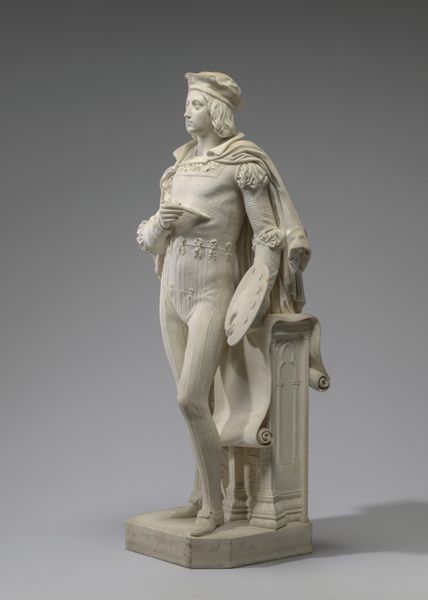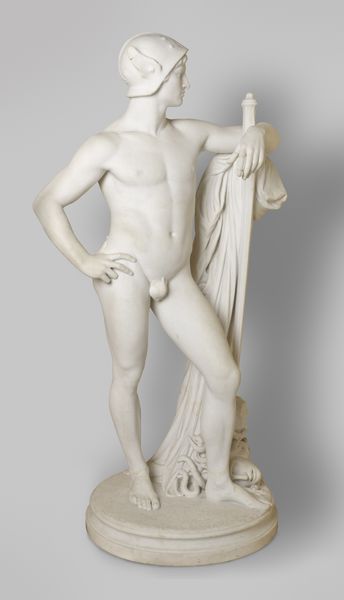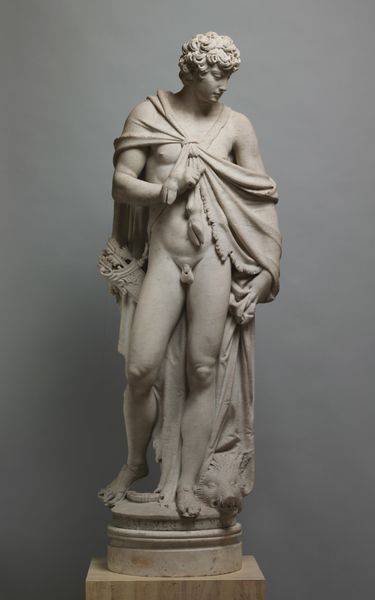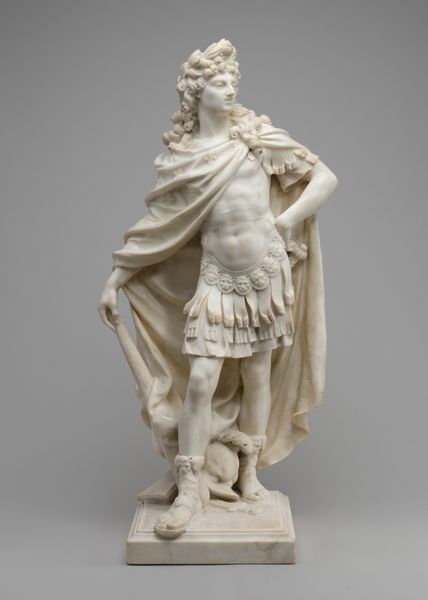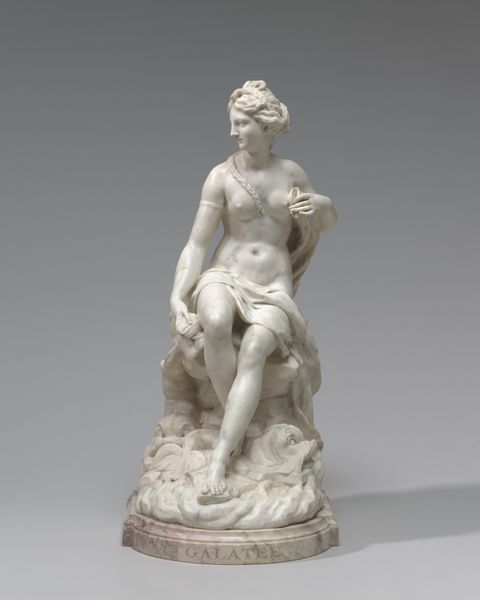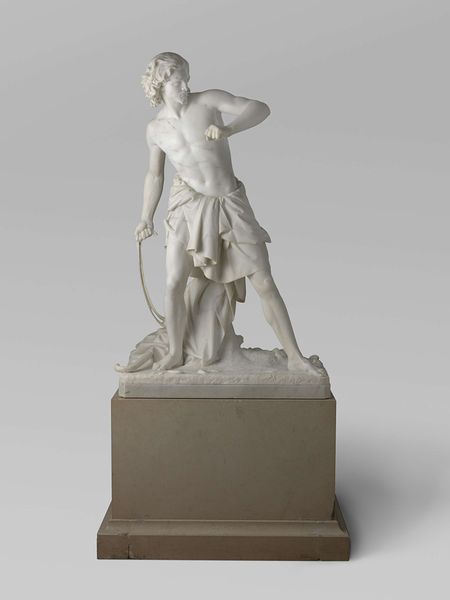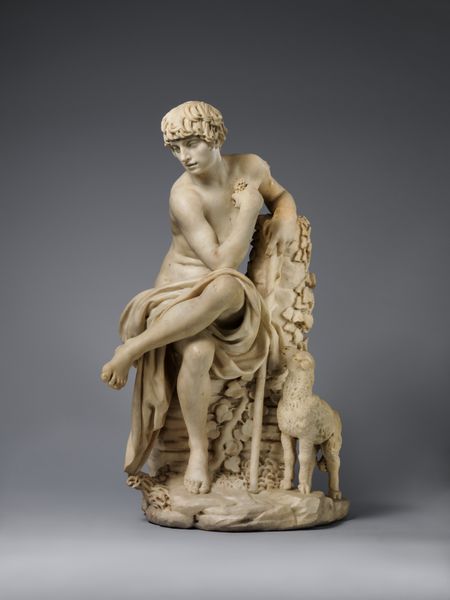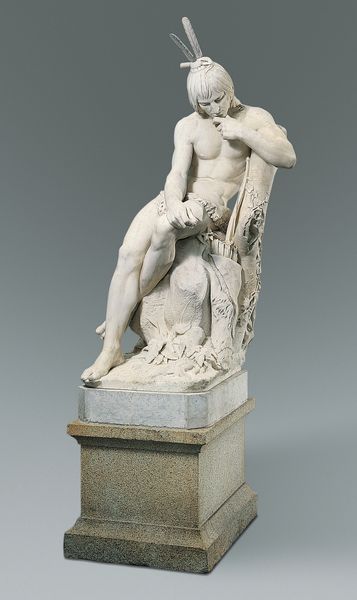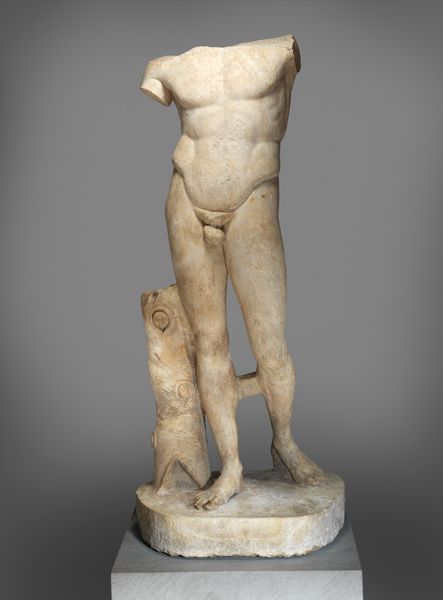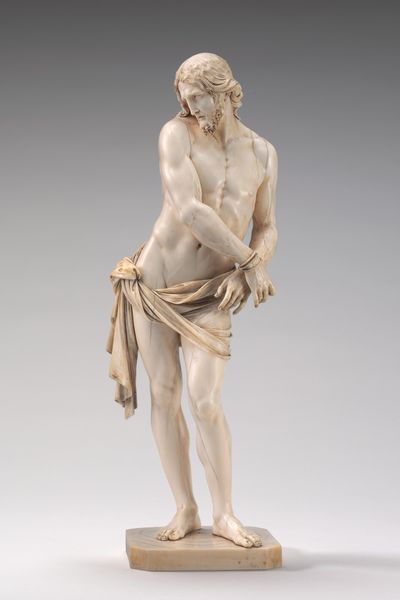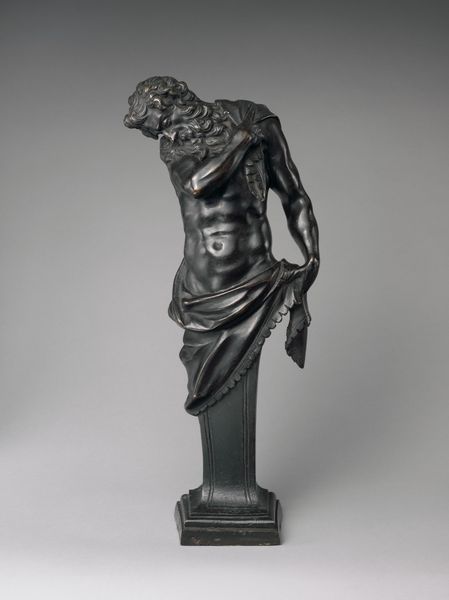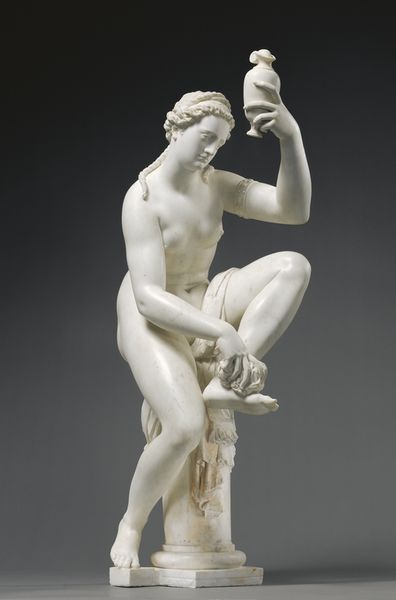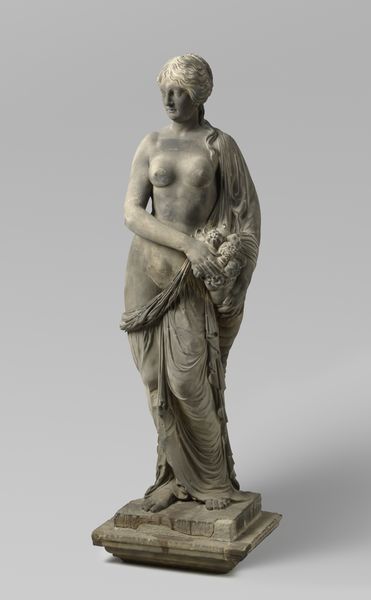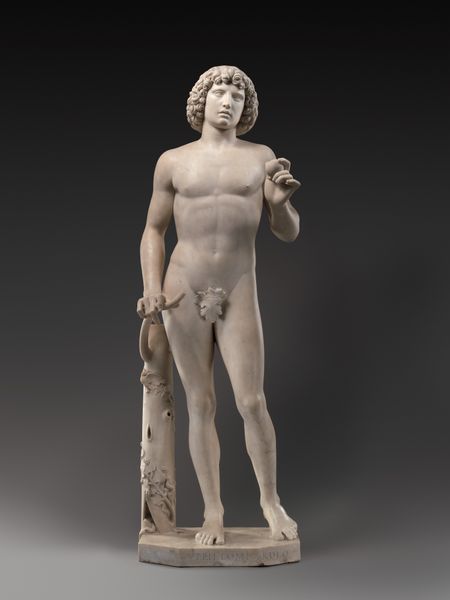
sculpture, marble
#
portrait
#
neoclacissism
#
sculpture
#
figuration
#
sculpture
#
history-painting
#
decorative-art
#
marble
#
male-nude
#
statue
Dimensions: Overall: 80 in. (203.2 cm)
Copyright: Public Domain
Editor: This marble sculpture, titled "Paris," was crafted by Antonio Canova sometime between 1817 and 1828. I’m struck by how...composed he seems. Almost nonchalant, for a mythological figure who supposedly kicked off the Trojan War. What do you make of that? Curator: That air of nonchalance is key, I think, to understanding Neoclassicism’s engagement with power. Consider how this depiction of Paris echoes classical ideals of masculine beauty, ideals often weaponized to uphold existing social and political hierarchies. Do you see how his body is both idealized and… available? Editor: Available? Curator: Yes, look at his pose. He is unclothed and leaning casually. Canova’s Paris presents a particular vision of masculinity, one rooted in privilege. Who is this for, do you think? Editor: A wealthy patron, probably. Someone who appreciated the idealized form… and maybe saw himself reflected in it? But it also feels removed from any real struggles or complexities. Curator: Exactly. Neoclassicism, while seemingly reviving democratic ideals of ancient Greece and Rome, often served to reinforce the status quo. The smoothness of the marble, the perfection of the physique… these elements mask the social and political realities of the time. Consider how this contrasts with, say, representations of the working class from the same era. How do those images tell different stories? Editor: So, it's not just about aesthetics; it's about who gets to be represented, and how. Curator: Precisely. Canova's Paris invites us to consider the intersections of art, power, and representation, prompting a critical dialogue about the historical context in which such "idealized" images were created and consumed. Editor: This has totally changed how I see Neoclassicism! It's not just about imitating the ancients. It’s a dialogue about power and visibility. Curator: I'm so glad to hear it.
Comments
No comments
Be the first to comment and join the conversation on the ultimate creative platform.
